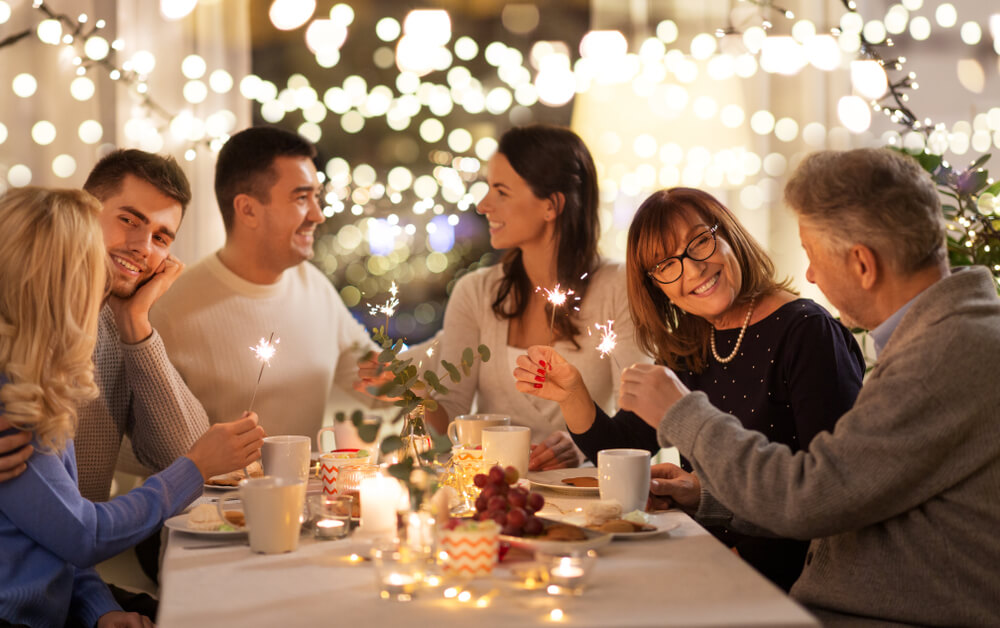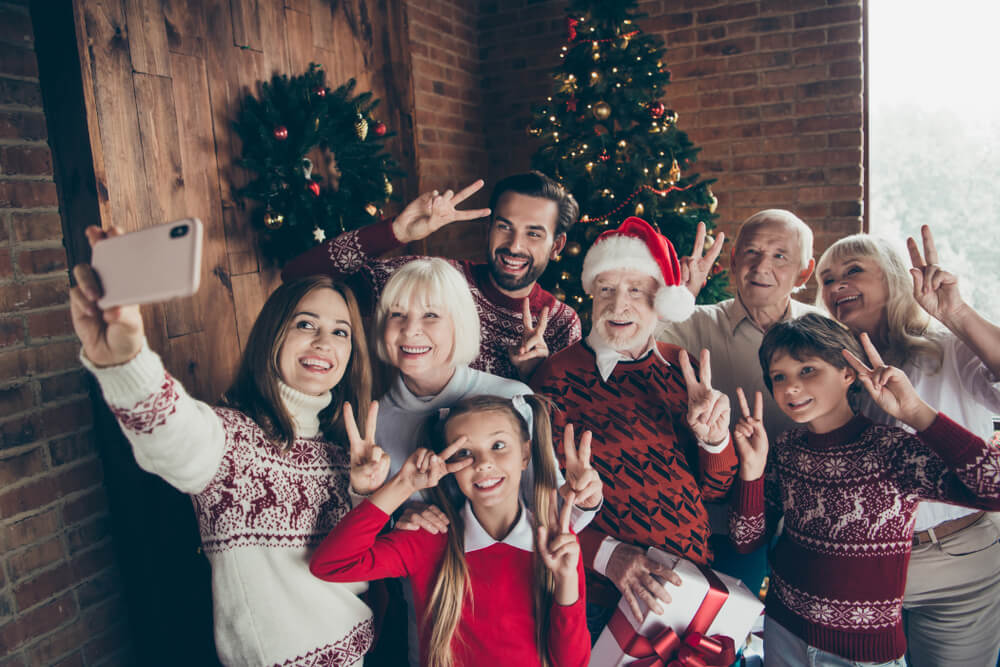How to Stay Sober During the Holidays

Why You Need to Focus on Staying Sober During the Holidays
The holidays can be an emotional landmine, even for the strongest, most well-adjusted individual. Being in addiction recovery during this time of year adds another layer of stress and uncertainty that can be difficult to navigate. You may wonder how to stay sober during the holidays, when people are in a celebratory state, with alcohol and drugs at nearly every social gathering. Along with the financial stress, the pressure to “have fun,” the anxiety of traveling, and the pressure that comes with multiple holiday parties and spending time with family members you hardly ever see, your routines are disrupted due to travel or hosting guests in your home, and there are complicated relationships to navigate.
If you decline invitations, you may feel judged, left out, and experience other emotions that come with the stress of missing out on an important event. All of this combined can make for a triggering experience, especially for somebody in early recovery. You may feel a loss of control, be emotionally triggered, and have the temptation to abuse substances simultaneously, a recipe for disaster, so staying focused on your well-being is of utmost importance during this time of year.
18 Tips to Stay Sober During the Holiday Season
Here are some ideas on how to stay sober during the holidays:
- Manage your stress levels. Incorporate exercise, music, meditation, breathing techniques, grounding techniques, spending time with animals, positive affirmations (“I can do this”), and mindfulness techniques into your day. Get enough sleep, make time for nourishing activities, and maintain healthy boundaries, saying “no” to parties or commitments that may not work for your recovery. If you are traveling or visiting loved ones, keep your usual schedule (sleeping, taking medications, eating regularly, etc.).
- Remind yourself how good it feels to be sober and purposefully think about it every day. Continue to place your recovery as your top priority, and base your holiday activity decisions on your ability to maintain control and balance regarding sobriety.
- Keep your expectations realistic. Not every interaction may be wonderful, especially if you have strained relationships with loved ones due to addiction or are anxious about attending social gatherings without drinking or using drugs. It’s OK to have an awkward moment, and it’s also OK to leave early if things become overwhelming.
- If you are flying and find yourself next to someone drinking, ask to be moved to a sober seatmate, and if you cannot move, distract yourself with a movie or reading as best you can.
- Limit the time you spend with relatives who add stress and drama to your life. If a family member or old acquaintance elicits strong emotional responses or pushes your buttons, stay mindful of your stress levels and have an exit plan if you find a situation overwhelming.
- Plan activities that get you out and active, rather than sitting around talking (and drinking), like playing board games, going for a walk, checking out the town’s festive decorations, seeing a show or movie, or going sledding or skating. You can even throw your own event in your home, making it fun on your own terms.
- Plan what to do when a craving hits and you are outside your comfort zone. For many people, it may be as simple as promising yourself not to drink for the next five minutes, then doing something else, like going for a walk or playing a game with your nephew in the other room.
- Avoid old friends who may not have your best interest in mind, and avoid high-risk situations like meeting up in a bar or going to a house party where you used to use drugs.
- Don’t romanticize drinking and drug use. It is easy around the holidays to feel like you would have more fun if you were drunk or high, but obsessing over substance abuse can only lead you back to addiction.
- Be careful about what you eat and drink around the holidays, alcohol finds its way into all sorts of scenarios, and even a celebratory sip of champagne could ignite a “thrill” that could lead you toward the compulsion to drink more. Serve yourself, or even bring your own water bottle or sodas, storing them away from the bar, so you are not tempted.
- Do not focus on what you are missing out on; instead, focus on your gratitude, looking for positive experiences and connections with others.
- Find 12-step groups or other recovery groups wherever you are if you are traveling, or schedule additional appointments or check-ins with therapists, sponsors, and other support.
- Plan so you are ready with answers to questions about your recovery and know what to say when somebody offers you drugs or alcohol.
- Try to handle issues as they happen, so they don’t build up into overwhelming stress. Procrastination often leads to lots of unnecessary anxiety.
- Bring a sober friend with you to events, so you have somebody there who “gets it” and can support you and help you field awkward moments with family and friends.
- Bring recovery books, podcasts, or other recovery reminders and refreshers with you when you travel to consistently reinforce your sobriety when you need it.
- Tell people you are in recovery. It is nothing to be embarrassed about. In fact, it is something to be celebrated. Set reasonable expectations with loved ones, letting them know your boundaries and what you can and cannot be around. Not only will this help people understand your situation, but it could also help others in the room see that it is a good thing to be sober, helping them overcome their addiction issues.
- Ask for help when you need it. Find those around you who understand and are willing to help, and go to them if you feel a loss of control or too much stress. This way, it is not all on your shoulders, and you will find new allies in your recovery.

Warning Signs of Relapse
There are three stages to relapse:
Emotional relapse:
- Feeling discontent, despair, anger, anxiety, and other negative thought patterns
- Being stressed out or feeling a loss of control
- Emotions and fears take over, and instead of taking steps to deal with them, you bottle them up.
- Isolating yourself from loved ones
- Not practicing self-care, with poor eating and sleeping habits.
- Feeling like you don’t need to follow your relapse prevention plan because you “got this,” actively sabotaging yourself by skipping meetings, other recovery programming, or missing doses of your medications.
Mental relapse:
- Thinking about using drugs and alcohol again…but only the good parts, conveniently leaving out all the bad that came with it.
- Experiencing cravings
- Having internal battles between staying sober and wanting to use again
- Compulsive behavior
- Trying to “trick” yourself into believing you would be fine if you just had a couple of drinks.
- Believing you would have way more fun if you were using drugs or drinking with everyone else.
- Telling yourself that it wasn’t so bad when you were using
Physical relapse:
- Actively participating in drinking or drug use again
- Falling into old patterns and behaviors, including lying to others and breaking your own self-imposed rules
See if drinking alcohol every day is bad for your health in our blog below:
Maintain Your Sobriety With the Help of Novo
The holidays are filled with so many triggers, temptations, and reminders of the past that it becomes an obstacle course for those trying to avoid drugs and alcohol. If you are in recovery and are questioning how to stay sober during the holidays, please contact the caring, professional, and non-judgmental team at Novo Detox by calling (844) 834-1777. Our accredited, small, private luxury inpatient detox and rehab facility offers concierge-level services, state-of-the-art medical detox services, and efficient, effective rehab programs. Please do not hesitate to reach out. We are only a phone call away.




